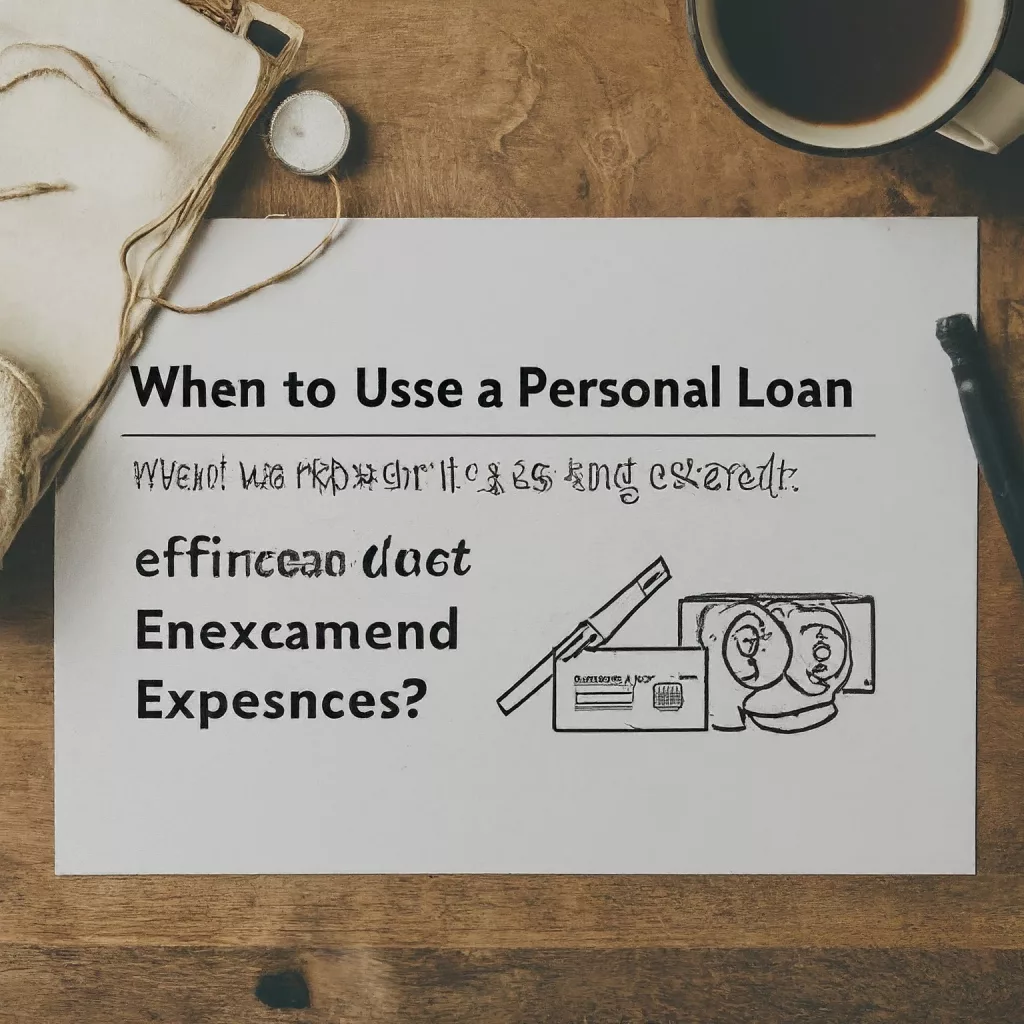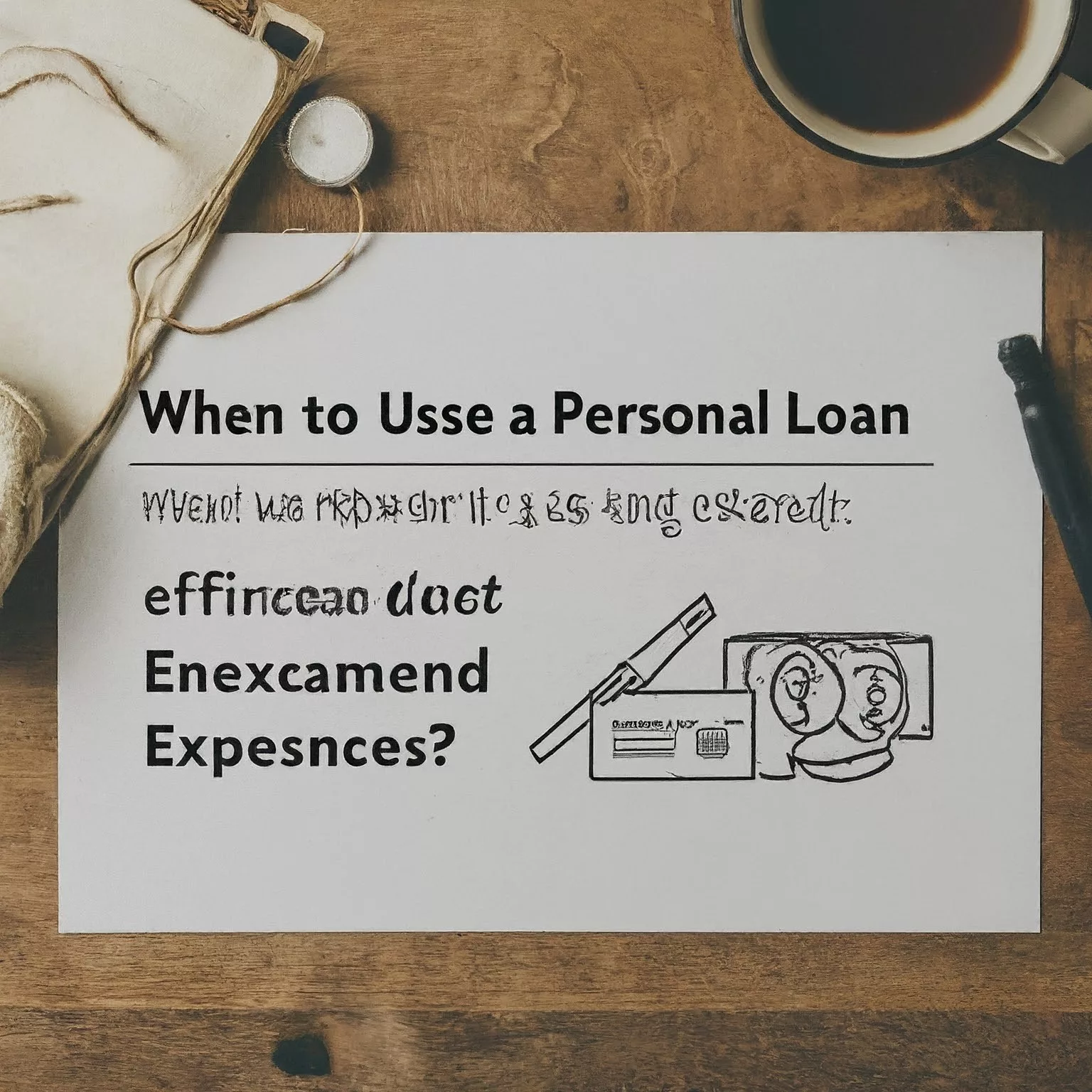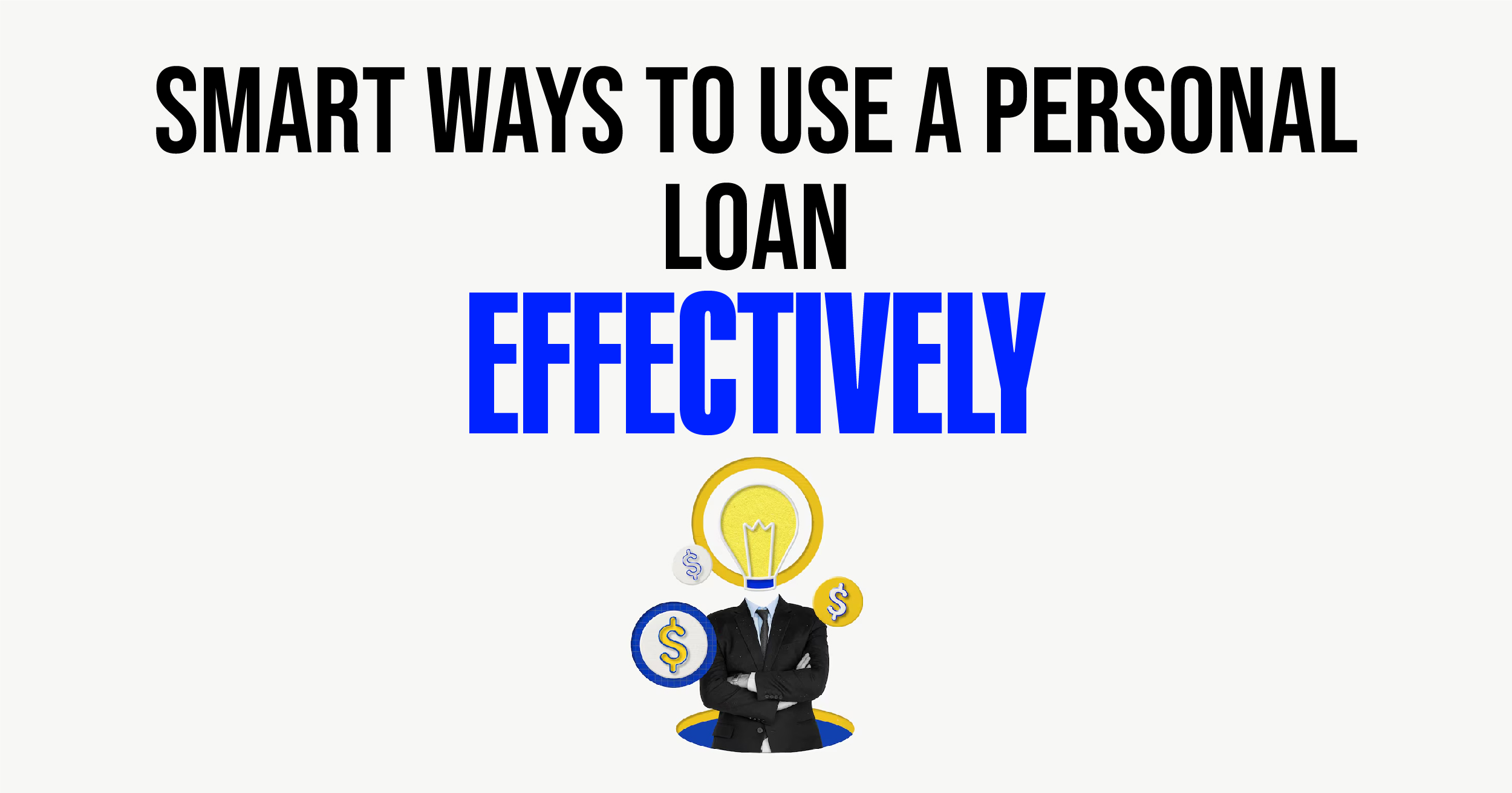Use a personal loan effectively by consolidating high-interest debt or funding essential expenses like home improvements. Avoid using it for non-essential purchases.
Personal loans can be a valuable tool if used wisely. They offer a lump sum of money that can address various financial needs. Interest rates are usually lower than credit cards, making them ideal for consolidating debt. Home improvements, medical expenses, or educational costs are good uses for personal loans.
Plan how to repay the loan to avoid financial strain. Misusing personal loans for non-essential items can lead to more debt. Understanding your financial situation and loan terms ensures you make the most of this financial resource.
Introduction To Personal Loans
Personal loans can help manage finances. They offer flexibility for various needs. Knowing how to use them effectively is key.
What Is A Personal Loan?
A personal loan is borrowed money. You can use it for many purposes. The lender gives you a lump sum. You repay it with interest over time.
Personal loans are unsecured. This means you don’t need collateral. The approval is based on your credit score.
| Feature | Details |
|---|---|
| Loan Amount | Varies by lender |
| Interest Rate | Depends on credit score |
| Repayment Term | Fixed period |
Benefits Of Personal Loans
Personal loans offer several benefits. They can improve financial health.
- Flexibility: Use for any purpose like debt, home, or travel.
- No Collateral: Unsecured loans mean no asset risk.
- Fixed Interest Rates: Predictable monthly payments.
- Debt Consolidation: Combine multiple debts into one.
Understanding these benefits can help you make better financial decisions.
Assessing Your Financial Situation
Before taking a personal loan, assess your financial situation. This helps you make informed decisions. It ensures you use the loan effectively and responsibly.
Evaluating Your Needs
Start by understanding why you need the loan. Is it for a medical emergency, home improvement, or debt consolidation? List your reasons and prioritize them.
- Emergency expenses
- Home renovation
- Debt consolidation
- Education fees
Ask yourself: Is the loan necessary? Can I manage without it? Answering these questions helps you decide if a loan is the best option.
Calculating Repayment Ability
Next, calculate your repayment ability. This ensures you can pay back the loan on time. To do this, follow these steps:
- List your monthly income sources.
- Note down all your monthly expenses.
- Subtract expenses from income to find disposable income.
Use the following table to organize your calculations:
| Income/Expense | Amount |
|---|---|
| Monthly Income | $4,000 |
| Rent | $1,200 |
| Utilities | $200 |
| Groceries | $300 |
| Transport | $150 |
| Other Expenses | $500 |
| Disposable Income | $1,650 |
Make sure your disposable income covers the loan payments. If not, consider adjusting your budget or loan amount. This ensures you don’t face financial stress later.
Choosing The Right Loan
Choosing the right loan is crucial for using a personal loan effectively. The right loan can save you money and reduce stress. It is essential to consider various factors before making a decision. Below are key aspects to focus on.
Interest Rates And Fees
Interest rates greatly impact the total cost of a loan. Lower rates mean you pay less over time. Compare rates from different lenders. Look for hidden fees like origination fees or prepayment penalties. These can add to your cost. A low-interest loan with high fees may not be a good deal.
| Loan Aspect | Details |
|---|---|
| Interest Rate | Look for low rates |
| Fees | Check for hidden charges |
| Prepayment Penalty | Avoid loans with this fee |
Loan Terms And Conditions
Loan terms define the repayment period and monthly payments. Shorter terms mean higher monthly payments but less interest paid overall. Longer terms mean lower monthly payments but more interest paid over time. Read the conditions carefully. Ensure you understand the repayment schedule and any penalties for late payments.
- Shorter Terms: Higher payments, less interest
- Longer Terms: Lower payments, more interest
- Repayment Schedule: Know your due dates
- Penalties: Avoid late payment fees
Choosing the right loan involves careful consideration of these aspects. Make sure to read all terms and conditions before signing any agreement.

Credit: www.livemint.com
Using A Personal Loan For Debt Consolidation
Using a personal loan for debt consolidation can be a smart financial move. It allows you to combine multiple debts into a single, manageable payment. This strategy can simplify your finances and potentially lower your interest costs.
Combining Multiple Debts
Combining multiple debts into one loan can make life easier. Instead of juggling several payments, you only have one. This can reduce stress and help you stay organized.
Here’s how it works:
- List all your debts: Credit cards, medical bills, etc.
- Apply for a personal loan: Ensure the loan amount covers all your debts.
- Use the loan: Pay off your existing debts.
Once you’ve done this, you only need to focus on repaying your personal loan. This can be less overwhelming than managing multiple creditors.
Reducing Interest Costs
A personal loan can have a lower interest rate than credit cards. This can help you save money over time.
Consider this example:
| Debt Type | Interest Rate |
|---|---|
| Credit Card 1 | 20% |
| Credit Card 2 | 18% |
| Personal Loan | 10% |
By consolidating your debts into a personal loan, you can reduce the average interest rate. This means lower monthly payments and less interest paid over time.
Here are the steps:
- Calculate your current interest rates: Add up the rates from all your debts.
- Compare: Check if a personal loan offers a lower rate.
- Apply: Get a loan with a better rate.
This approach can help you save money and pay off your debt faster. It’s a win-win situation for your financial health.
Financing Major Purchases

Personal loans can be a great tool for financing major purchases. Whether you are planning a home improvement project or buying a vehicle, a personal loan can provide the funds you need. Below, we discuss how to use a personal loan effectively for these big expenses.
Home Improvement Projects
Home improvement projects can be expensive. A personal loan can help you cover these costs without draining your savings.
Here are some common home improvement projects you can finance with a personal loan:
- Kitchen remodel
- Bathroom upgrade
- New roof
- Landscaping
Using a personal loan for home improvements can increase your home’s value. This could be beneficial if you plan to sell your home in the future.
Below is a comparison table of typical home improvement costs:
| Project | Average Cost |
|---|---|
| Kitchen Remodel | $20,000 – $50,000 |
| Bathroom Upgrade | $10,000 – $25,000 |
| New Roof | $5,000 – $10,000 |
| Landscaping | $2,000 – $5,000 |
Buying A Vehicle
Buying a new vehicle can also be a significant expense. A personal loan can help you purchase a car or a motorcycle without a large down payment.
Here are some advantages of using a personal loan for buying a vehicle:
- No collateral needed
- Fixed interest rates
- Predictable monthly payments
With a personal loan, you can often get better terms than with traditional auto loans. This can save you money in the long run.
Below is an example of how a personal loan can be used for vehicle financing:
Loan Amount: $20,000
Interest Rate: 5%
Loan Term: 5 years
Monthly Payment: $377.42
This shows how manageable a personal loan can make large purchases.

Credit: www.andromedaloans.com
Investing In Education
Using a personal loan to invest in education can be a smart move. Education often provides long-term benefits and opens many doors. A personal loan can help you pay for tuition, living expenses, and other costs. Let’s explore how to use a personal loan effectively for educational purposes.
Paying For Tuition
Tuition costs can be high, especially for specialized programs. With a personal loan, you can cover these costs and focus on your studies.
Here’s how a personal loan can help:
- Immediate funds for tuition fees
- Fixed interest rates for predictable monthly payments
- Flexible repayment terms that fit your budget
Avoid stressing about fees and concentrate on your education. Many lenders offer loans specifically tailored for students. This ensures you get favorable terms and conditions.
Covering Living Expenses
Education is not just about tuition. Living expenses like rent, food, and transportation can add up quickly. A personal loan can help you manage these costs effectively.
Here’s a breakdown of common living expenses:
| Expense | Average Monthly Cost |
|---|---|
| Rent | $800 – $1,200 |
| Food | $200 – $400 |
| Transportation | $50 – $150 |
With a personal loan, you can ensure you have enough funds each month. This allows you to focus on your studies without financial worries. Be sure to create a budget to track your expenses. This will help you manage your loan effectively.
Handling Emergencies
Emergencies can happen at any time. A personal loan can be a great help. Whether it’s medical expenses or unexpected repairs, personal loans can provide quick relief. Using personal loans effectively can save you from financial stress.
Medical Expenses
Medical emergencies are unpredictable and can be costly. A personal loan can cover these expenses. This includes hospital bills, surgery costs, and medication. Quick access to funds ensures you get immediate care. Paying for medical expenses with a personal loan can prevent you from draining your savings.
| Medical Expense | Estimated Cost |
|---|---|
| Hospital Stay | $500 – $5,000 |
| Surgery | $1,000 – $10,000 |
| Medications | $50 – $500 |
Unexpected Repairs
Home and car repairs can arise suddenly. A personal loan can cover these costs. Fixing a broken roof or a car engine can be expensive. Quick funds from a loan ensure repairs are done on time. This prevents further damage and higher costs in the future.
- Home Repairs
- Car Repairs
- Appliance Repairs
Using a personal loan for unexpected repairs can save you stress. It ensures your home and car remain functional and safe.

Credit: www.andromedaloans.com
Tips For Responsible Borrowing
Using a personal loan wisely can improve your financial health. Here are some tips for responsible borrowing to help you manage your loan effectively.
Avoiding Over-borrowing
Over-borrowing can lead to financial stress. Borrow only what you need. Use a budget to determine the exact amount you need. This helps avoid unnecessary debt.
- Calculate your monthly expenses.
- Assess your income.
- Determine how much you can repay each month.
Stick to your borrowing limit. This keeps your finances manageable. Avoid taking loans for non-essential items.
Maintaining A Good Credit Score
A good credit score helps you secure better loan terms. Pay your loan installments on time. This improves your credit score.
- Set up automatic payments.
- Track your payment dates.
- Clear any missed payments promptly.
Keep your credit utilization low. This means using less than 30% of your available credit. Monitor your credit report regularly. This helps catch errors that could affect your score.
Avoid opening multiple new credit accounts at once. This can hurt your credit score.
| Tip | Action |
|---|---|
| Pay on time | Set reminders or auto-pay |
| Monitor credit usage | Keep usage under 30% |
| Check credit report | Look for errors |
Frequently Asked Questions
How To Properly Use A Personal Loan?
Use a personal loan for essential expenses only. Create a repayment plan. Avoid borrowing more than needed. Monitor your spending. Ensure timely payments to maintain credit.
How To Use Personal Loans Wisely?
Use personal loans for essential expenses only. Create a repayment plan. Avoid borrowing more than needed. Compare interest rates. Make timely payments to avoid penalties.
What Is The Best Way To Take Out A Personal Loan?
Compare lenders online to find the best rates. Check your credit score. Gather necessary documents. Apply online or in-person. Review loan terms carefully.
How Can I Use A Personal Loan To Make Money?
Invest in stocks, start a small business, or buy rental property. Pay off high-interest debt to save money.
Conclusion
Using a personal loan wisely can improve your financial health. Prioritize needs over wants and make timely payments. Always read the terms carefully before committing. By staying disciplined, you can manage debt effectively and achieve your financial goals. Remember, responsible borrowing leads to long-term benefits.

